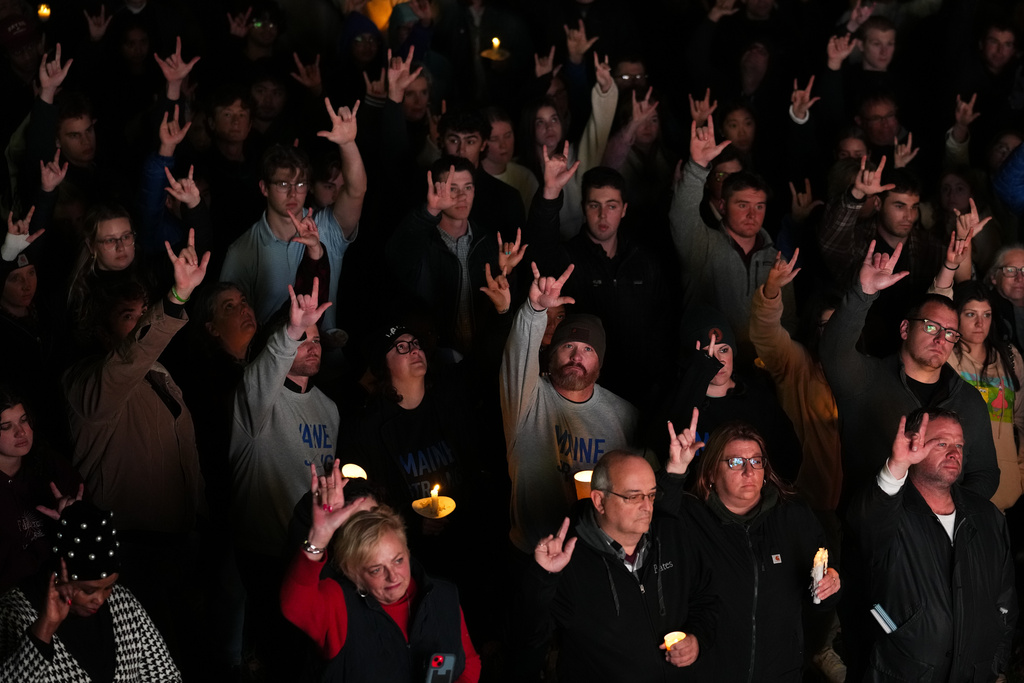Five months before he shot and killed 18 people at a Maine bowling alley and restaurant last week, Robert Card’s family contacted the sheriff’s office where he lived and said they were concerned about his mental health and easy access to guns.
Sagadohoc County Sheriff Joel Merry said deputies contacted Card’s Army Reserve Unit, where officials assured them they would speak with the 40-year-old sergeant first class and make sure he got any treatment he needed, The Associated Press reported.
Merry previously said he sent deputies to Card’s Bowdoin home in September after his Reserve unit contact him, but they were unable to find him, prompting the sheriff to send out a statewide alert. as CrimeOnline reported.
Three months before that, New York state police took Card to an Army mental health facility in New York after his behavior became erratic while at a training exercise at the US Military Academy at West Point. Card reportedly made threats to his unit at the time, and Army officials determined that he shouldn’t have a weapon, handle ammunition or “participate in live fire activity,” an Army spokesperson told CBS News.
The Army determined Card was “non-deployable due to concerns over his well-being,” and his company commander was notified, Lt. Col. Ruth Castro said in a statement.
Castro said the September request was made “out of an abundance of caution after the unit became concerned for his safety.” She provided no further information, saying the Army was still investigating.

Amid multiple contacts between law enforcement, Card’s military unit, and his family — all over concerns about his deteriorating mental health and access to weapons — it’s not clear how seriously all the entities took the concerns.
In early August, Card bought a silencer online and arranged to pick it up at a gunshop in Auburn. Rick LaChappelle, owner of Coastal Defense Firearms, said Card came in to fill out the form to pick up the silence on August 5, The Associated Press said. One of the questions on the form: “Have you ever been adjudicated as a mental defective OR have you even been committed to a mental institution?”
Card answered “yes.”
“As soon as he answered that ‘yes’ we know automatically that this is disqualifying, he’s not getting a silencer today,” said LaChapelle.
Mark Collins, federal policy director of the gun violence prevention group Brady, said that the typical wait time under those conditions is six to eight months and that the purchase has to be approved by the Bureau of Alcohold, Tobacco, Firearms, and Explosives.
LaChapelle said Card was polite when he told them about the denial, then said something about the military and that he would “come right back” after consulting his lawyer.
Family members, who have been cooperative, reportedly told federal investigators that Card had become focused on the bowling alley and bar where the shootings took place and discussed hearing voices with them, according to law enforcement officials.
Merry said in a statement Monday night that he believes “our agency acted appropriately and followed procedures for conducting an attempt to locate and wellness check, but he also said that his office would evaluate those policies and procedures for any needed changes “that are in the interest of public safety while balancing the rights of individuals.”
In his statement, Merry said that members of Card’s family who contacted his office in May said that Card’s mental health had been deteriorating since January.
After a second visit to Card’s home on September 16 — when he may have been at the residence and not answering the door — Merry said a deputy checked back with Card’s unit commander, who told him that Card no longer had access to weapons at the base. The commander said they were working to get treatment for Card and that he thought it best to let him “have time to himself.”
The deputy spoke with Card’s brother the next day and was told he was working to secure firearms Card had access to. The deputy asked the family to contact the sheriff’s office if they believed Card needed an evaluation, and on October 16, the statewide alert was cancelled.
A week later, Card, 40, walked into Just-in-Time Recreation bowling alley and opened fire. Before police could arrive, he traveled four miles down the road and opened fire at Schemengees Bar & Grille. Eighteen people lost their lives, and 13 more were wounded.
Card was found dead from a self-inflicted gunshot wound two days later inside a box trailer at a recycling plant, just a mile down the Androscoggin River from the boat ramp where his vehicle was found abandoned the night of the shootings.
For the latest true crime and justice news, subscribe to the ‘Crime Stories with Nancy Grace’ podcast.
[Featured image: Robert Card/Lewiston Police Department]


